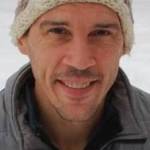 |
Executive Director, Conservation Science and Solutions
Todd Stevens oversees WCS's cross-cutting work on four global programs: Climate Change, Conservation and the Quality of Human Life, Ecosystems Services, and Business and Conservation. Before coming to WCS, Todd was a Project Leader at The Boston Consulting Group, specializing in nonprofit management and strategy development for global charities. Prior to that, he worked in investment banking and private equity. Todd has a PhD in History from Princeton University, where he was a visiting professor for two years.
|
 |
Todd Stevens
Executive Director, Conservation Science and Solutions
Todd Stevens oversees WCS's cross-cutting work on four global programs: Climate Change, Conservation and the Quality of Human Life, Ecosystems Services, and Business and Conservation. Before coming to WCS, Todd was a Project Leader at The Boston Consulting Group, specializing in nonprofit management and strategy development for global charities. Prior to that, he worked in investment banking and private equity. Todd has a PhD in History from Princeton University, where he was a visiting professor for two years.
|
|
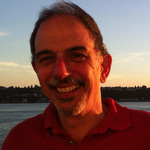 |
Director, Business & Conservation Initiative
Ray Victurine leads the WCS Business and Conservation Initiative, which engages with industry and governments to support policies and practices that seek to balance conservation objectives with development interests through design and implementation of best practices aimed at reducing and compensating for impacts on biodiversity and ecosystem services. Ray has more than 25 years experience working on conservation and sustainable development issues in Latin America, Africa, and Asia, and has lived and traveled extensively throughout these regions promoting sustainable development programs and policies that achieve conservation outcomes and economic development objectives. Ray is trained as a natural resource economist with a focus on water resources. Prior to joining WCS, Ray was an environmental consultant focused on sustainability and conservation financing. He also contributed to the establishment of two conservation trust funds in Africa and Asia, and also worked in Uganda where he contributed to national environmental policy, tourism development, and creation of a national-level private conservation financing institution and land trust.
|
 |
Ray Victurine
Director, Business & Conservation Initiative
Ray Victurine leads the WCS Business and Conservation Initiative, which engages with industry and governments to support policies and practices that seek to balance conservation objectives with development interests through design and implementation of best practices aimed at reducing and compensating for impacts on biodiversity and ecosystem services. Ray has more than 25 years experience working on conservation and sustainable development issues in Latin America, Africa, and Asia, and has lived and traveled extensively throughout these regions promoting sustainable development programs and policies that achieve conservation outcomes and economic development objectives. Ray is trained as a natural resource economist with a focus on water resources. Prior to joining WCS, Ray was an environmental consultant focused on sustainability and conservation financing. He also contributed to the establishment of two conservation trust funds in Africa and Asia, and also worked in Uganda where he contributed to national environmental policy, tourism development, and creation of a national-level private conservation financing institution and land trust.
|
|
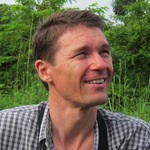 |
Lead, REDD+ and Forest Conservation Program
Tom Evans leads WCS’s REDD+ and Forest Conservation Program. He coordinates a diverse portfolio of REDD+ demonstration projects around the world and works to ensure that these inform the design of REDD+ systems through UNFCCC negotiations, national REDD+ readiness processes, and voluntary certification standards. Tom has a PhD from the Department of Plant Sciences, University of Oxford, on the sustainable management of wild rattans in Lao PDR. For the past ten years, he has specialized in protected area management in the tropics, with a particular interest in human use of natural resources, and the relationships between agriculture and forest protection. Before joining the climate change program, Tom was with the WCS Cambodia Program for more than nine years, as both Deputy Director and Senior Technical Advisor. Prior to that, he conducted biological surveys and protected areas assessments in many parts of the tropics, and also worked at ProForest on a range of sustainable commodity initiatives with private sector partners.
|
 |
Tom Evans
Lead, REDD+ and Forest Conservation Program
Tom Evans leads WCS’s REDD+ and Forest Conservation Program. He coordinates a diverse portfolio of REDD+ demonstration projects around the world and works to ensure that these inform the design of REDD+ systems through UNFCCC negotiations, national REDD+ readiness processes, and voluntary certification standards. Tom has a PhD from the Department of Plant Sciences, University of Oxford, on the sustainable management of wild rattans in Lao PDR. For the past ten years, he has specialized in protected area management in the tropics, with a particular interest in human use of natural resources, and the relationships between agriculture and forest protection. Before joining the climate change program, Tom was with the WCS Cambodia Program for more than nine years, as both Deputy Director and Senior Technical Advisor. Prior to that, he conducted biological surveys and protected areas assessments in many parts of the tropics, and also worked at ProForest on a range of sustainable commodity initiatives with private sector partners.
|
|
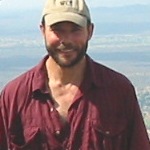 |
Director, Conservation Measures
As Director of Conservation Measures for the Wildlife Conservation Society, David Wilkie seeks to strengthen the practice and impact of WCS conservation worldwide. David joined WCS in 2001. Since then he has led efforts to ensure that WCS field programs identify explicit conservation objectives for which we hold ourselves accountable, and tactically monitor and report our conservation progress. Today he leads our 5-measures approach to evidence-based conservation.
He is a founder of the Conservation Measures Partnership – a joint venture of conservation NGOs committed to improving the practice of conservation by promoting adoption of a consensus-based set of standards for planning, implementation and measuring conservation impact. He was co-chair of the Bushmeat Crisis Task Force, and helped establish the Conservation Initiative on Human Rights. He is a member of the WCS Institutional Review Board for protection of human subjects. He is the director of the Ituri Forest Peoples’ Fund – a special project of Cultural Survival. David has over 30 years of experience working in international conservation in Central Africa, Central and South America and Asia. He is a Ph.D. wildlife ecologist with a post-doctoral anthropology specialization in the socio-economic drivers of natural resource use practices. His work covers the impacts of commercialization of non-timber forest products on forest conservation; the role that logging plays in the commercial wildlife trade; the role that income, prices, and taste preferences play in determining demand for wildlife; the use of conditional direct payments as a tool for biodiversity conservation in developing countries; and the use of satellite imagery, and agent-based, spatial simulations to model present and future tropical forest loss. He has published more than 140 peer reviewed articles and books.
|
 |
David S. Wilkie
Director, Conservation Measures
As Director of Conservation Measures for the Wildlife Conservation Society, David Wilkie seeks to strengthen the practice and impact of WCS conservation worldwide. David joined WCS in 2001. Since then he has led efforts to ensure that WCS field programs identify explicit conservation objectives for which we hold ourselves accountable, and tactically monitor and report our conservation progress. Today he leads our 5-measures approach to evidence-based conservation.
He is a founder of the Conservation Measures Partnership – a joint venture of conservation NGOs committed to improving the practice of conservation by promoting adoption of a consensus-based set of standards for planning, implementation and measuring conservation impact. He was co-chair of the Bushmeat Crisis Task Force, and helped establish the Conservation Initiative on Human Rights. He is a member of the WCS Institutional Review Board for protection of human subjects. He is the director of the Ituri Forest Peoples’ Fund – a special project of Cultural Survival. David has over 30 years of experience working in international conservation in Central Africa, Central and South America and Asia. He is a Ph.D. wildlife ecologist with a post-doctoral anthropology specialization in the socio-economic drivers of natural resource use practices. His work covers the impacts of commercialization of non-timber forest products on forest conservation; the role that logging plays in the commercial wildlife trade; the role that income, prices, and taste preferences play in determining demand for wildlife; the use of conditional direct payments as a tool for biodiversity conservation in developing countries; and the use of satellite imagery, and agent-based, spatial simulations to model present and future tropical forest loss. He has published more than 140 peer reviewed articles and books.
|
|
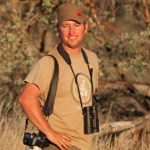 |
Director, Science and Research Initiative
James is an Associate Professor Fellow at University of Queensland and Director of Science and Research Initiative at the Wildlife Conservation Society. For the past six years, James has directed WCS’s climate change program, leading the planning and implementation of climate adaptation and REDD+ projects throughout WCS’s landscape, seascape, and species conservation programs. He currently serves on the leadership committee for the Science for Nature and People (SNAP) Initiative, the International Panel for Biodiversity and Ecosystem Services (IPBES) Data and Knowledge Task Force, and was chair of the IUCN’s climate change specialist group. James was recently elected the global president of the Society for Conservation Biology. He is the director the Green Fire Science research group (www.greenfirescience.com) whose mission is to do applied research that is linked directly to the practice of conservation. in 2004 where, funded by a Rhodes Scholarship, he explored the effects of habitat fragmentation on birds in Madagascar and Australia. James is the current President-elect of the Society of Conservation Biology; Chair of the IUCN’s Climate Change Specialist Group; an Associate Professor at the University of Queensland, Australia; an editor of four conservation journals (Conservation Biology, Diversity and Distributions, Scientific Reports, and Pacific Conservation Biology); and he has published more than 80 peer-reviewed and popular articles on conservation-related issues.
|
 |
James Watson
Director, Science and Research Initiative
James is an Associate Professor Fellow at University of Queensland and Director of Science and Research Initiative at the Wildlife Conservation Society. For the past six years, James has directed WCS’s climate change program, leading the planning and implementation of climate adaptation and REDD+ projects throughout WCS’s landscape, seascape, and species conservation programs. He currently serves on the leadership committee for the Science for Nature and People (SNAP) Initiative, the International Panel for Biodiversity and Ecosystem Services (IPBES) Data and Knowledge Task Force, and was chair of the IUCN’s climate change specialist group. James was recently elected the global president of the Society for Conservation Biology. He is the director the Green Fire Science research group (www.greenfirescience.com) whose mission is to do applied research that is linked directly to the practice of conservation. in 2004 where, funded by a Rhodes Scholarship, he explored the effects of habitat fragmentation on birds in Madagascar and Australia. James is the current President-elect of the Society of Conservation Biology; Chair of the IUCN’s Climate Change Specialist Group; an Associate Professor at the University of Queensland, Australia; an editor of four conservation journals (Conservation Biology, Diversity and Distributions, Scientific Reports, and Pacific Conservation Biology); and he has published more than 80 peer-reviewed and popular articles on conservation-related issues.
|
|
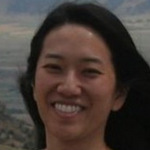 |
Climate Change Policy Specialist, Forests & Climate Change
Stephanie Wang works as Climate Change Policy Specialist, Conservation Science and Solutions. Stephanie has over 3 years experience with WCS.
|
 |
Stephanie Wang
Climate Change Policy Specialist, Forests & Climate Change
Stephanie Wang works as Climate Change Policy Specialist, Conservation Science and Solutions. Stephanie has over 3 years experience with WCS.
|
|